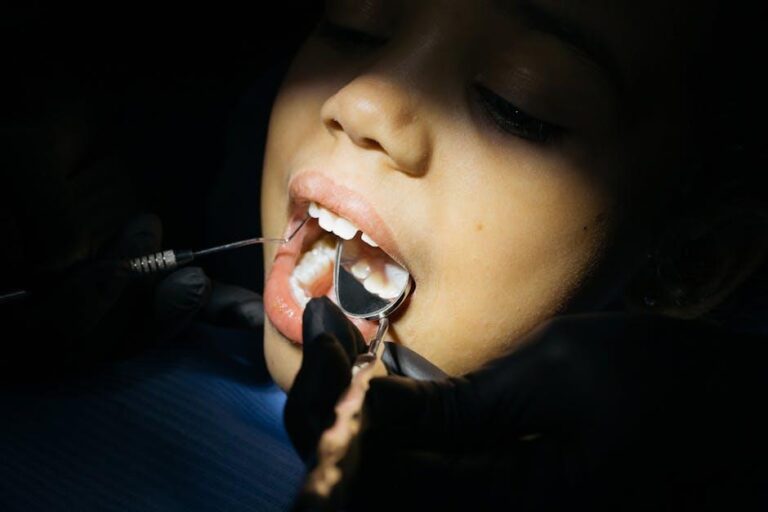I’m a Dentist – Never Ignore These Symptoms in Children
As a dentist with years of experience caring for young patients, I often get asked by parents how to tell if a child’s dental problem should be addressed immediately or simply monitored at home. Children’s oral health is incredibly important — and some symptoms, when ignored, can lead to serious complications later in life. In this article, I want to share critical warning signs and symptoms that every parent should never ignore. From tooth pain to gum changes, learning these signs can safeguard your child’s smile and overall health.
Why Early Detection of Dental Problems is Crucial
Children’s teeth and jaws are still developing, which means untreated dental issues can affect eating, speech, and self-confidence. Early intervention helps prevent more invasive treatments and pain. Regular dental visits are important, but understanding symptoms right at home empowers parents to seek timely care when needed.
Common Dental Symptoms in Children You Should Never Ignore
1. Persistent Toothache or Sensitivity
Occasional minor discomfort is normal, but if your child complains of a persistent toothache or sensitivity to hot, cold, or sweet foods lasting more than two days, it’s a red flag. This could indicate tooth decay, a cavity, or an infection that needs prompt treatment.
2. Swelling or Pus Around the Tooth or Gums
Any swelling, redness, or pus near your child’s teeth can signal an abscess or gum infection. These bacterial infections can spread without intervention and cause serious pain and systemic illness.
3. Loose or Missing Teeth Outside Normal Timeline
While tooth loss is expected with growing kids, any loose teeth too early (before age 4) or teeth that are loose and painful beyond the normal exfoliation schedule warrant evaluation.
4. White or Brown Spots on Teeth
Early signs of decay often appear as white or brown spots on the enamel surface. These lesions indicate demineralization and require dental assessment to stop progression.
5. Gums That Bleed Easily or Are Tender
Bleeding gums, especially when brushing or flossing, are a sign of gum disease (gingivitis). Untreated gingivitis can escalate to more severe periodontal problems later in life.
6. Difficulty Chewing or Speaking
Complaints about chewing difficulties or changes in speech could be related to dental alignment or jaw issues that need orthodontic or dental input early on.
Symptoms Table: Quick Reference Guide for Parents
| Symptom | Possible Cause | Recommended Action |
|---|---|---|
| Persistent toothache | Decay, cavity, infection | Visit dentist within 48 hours |
| Swelling or pus | Abscess, gum infection | Seek emergency dental care |
| Loose teeth outside normal | Trauma, infection, abnormal shedding | Dental consultation recommended |
| White/brown spots on teeth | Early tooth decay | Preventive dental visit |
| Bleeding gums | Gingivitis | Improve oral hygiene, dental check-up |
| Difficulty chewing or speaking | Malocclusion, injury | Orthodontic or dental evaluation |
Firsthand Experience: A Case Study
One of my patients, eight-year-old Liam, came in with a mild toothache that his parents initially dismissed as “teething pain.” Upon examination, I found a deep cavity affecting his molar, which was close to developing an abscess. Because we caught it in time, Liam was able to receive a simple filling and avoid an emergency root canal treatment. This underscores the importance of not ignoring subtle signs.
Benefits of Early Dental Symptom Recognition in Children
- Reduces pain and discomfort: Immediate care prevents prolonged suffering.
- Prevents complicated treatments: Early diagnosis often means simpler procedures.
- Supports healthy development: Good oral health impacts speech, nutrition, and confidence.
- Saves money in the long run: Preventive care reduces expensive interventions.
Practical Tips for Parents to Monitor Children’s Oral Health
- Establish a regular brushing routine: Twice daily with fluoride toothpaste.
- Schedule routine dental check-ups: Every six months from age one.
- Watch for changes in eating or behavior: Complaints about pain or difficulty should be noted.
- Limit sugary snacks and drinks: Sugar fuels cavities; encourage healthy alternatives.
- Educate your child about dental care: Empowering kids builds good habits.
- Keep emergency dental contacts handy: Know your local pediatric dentist’s after-hours options.
When to See a Dentist Immediately
If your child suffers any kind of dental trauma—such as knocked-out or fractured teeth—or shows signs of severe swelling, fever with tooth pain, or persistent bleeding, seek immediate professional dental care.
Conclusion: Don’t Ignore These Critical Symptoms
Children’s oral health is foundational to their overall wellbeing and quality of life. As a dentist, I urge parents to take every symptom seriously—whether it’s pain, swelling, or unusual changes in the teeth or gums. Early action can prevent pain, costly treatments, and long-term problems. By staying informed and proactive, you can ensure your child’s smile stays healthy and bright for years to come.
For more expert dental advice, follow Daily Express Health and schedule your child’s next dental check-up today!


